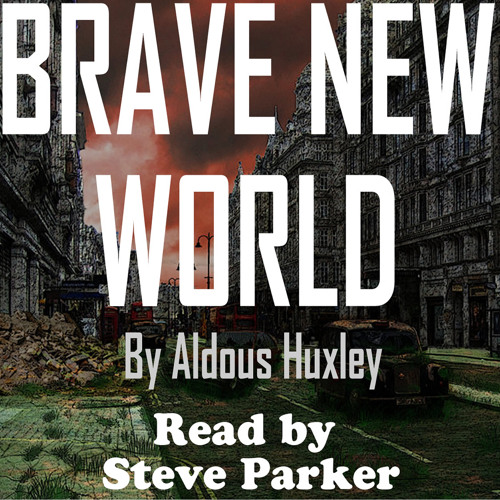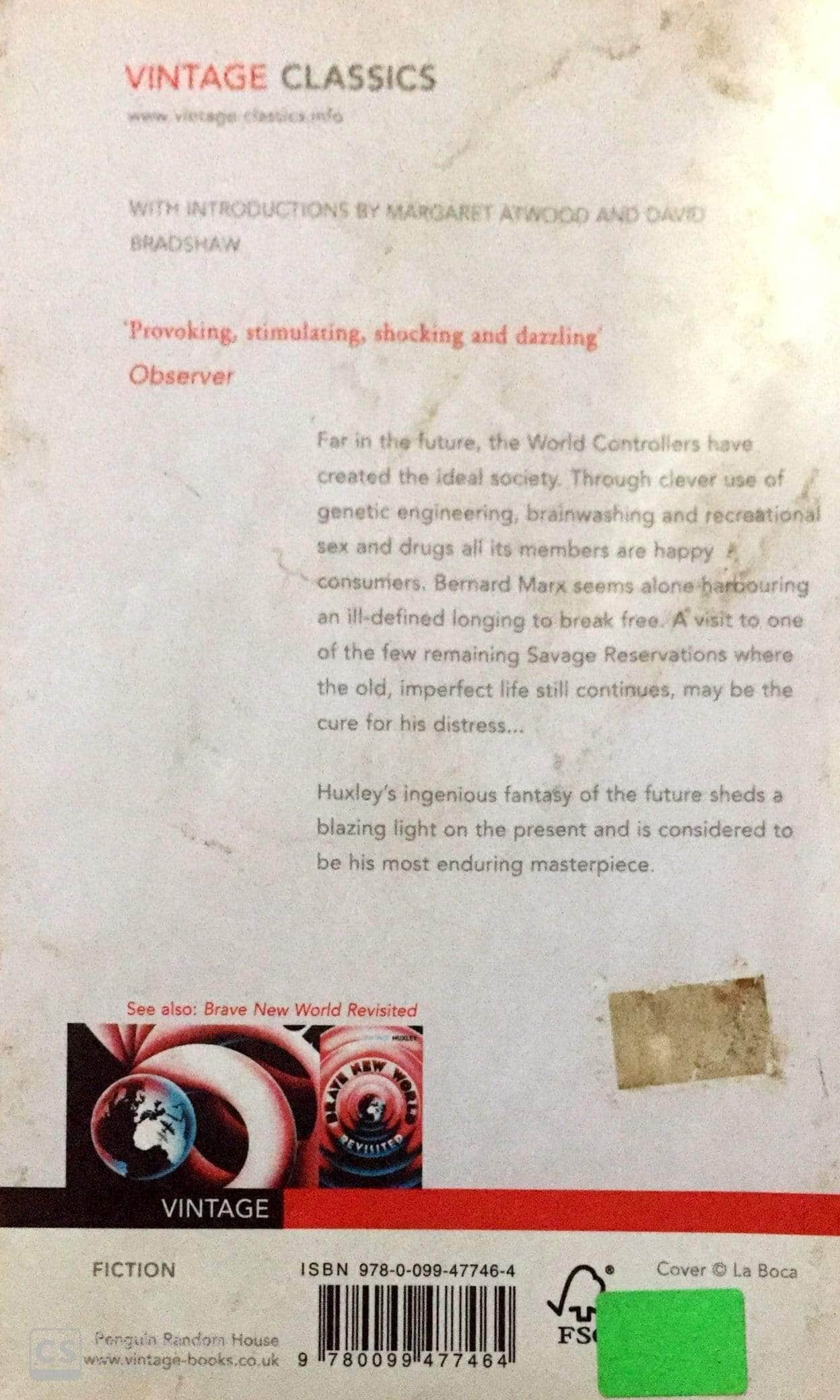

Only from the yellow barrels of the microscopes did it borrow a certain rich and living substance, lying along the polished tubes like butter, streak after luscious streak in long recession down the work tables. The overalls of the workers were white, their hands gloved with a pale corpse-coloured rubber. Cold for all the summer beyond the panes, for all the tropical heat of the room itself, a harsh thin light glared through the windows, hungrily seeking some draped lay figure, some pallid shape of academic goose-flesh, but finding only the glass and nickel and bleakly shining porcelain of a laboratory. The enormous room on the ground floor faced towards the north. The second paragraph, describing the Central London Hatchery and Conditioning Centre, had me gasping in awe:

It only took the first page for me to realize what I'd missed before. Thus I recently picked up a new copy, ready to try and finally appreciate and contextualize Huxley's satiric vision of a "utopian" future where humans are genetically bred and pharmaceutically anesthetized to passively serve a ruling order. So much was lost on me when i first read it way back in high school, probably because a) it was an abridged version and b) I was an antsy teenager. But, before I could get to any number of the novels I hadn't read, I had to revisit one I had: Brave New World by Aldous Huxley. Feeling demoralized and humbled, I recently printed out the list, determined to conquer them all. To my literary dismay, I'd only knocked down 36 of the 100. A former English major, I tallied up my own number, expecting that I had at least half of them on my bookshelf.

Media Platforms Design Team Some time ago the BBC released a list of 100 books, classic and otherwise, and along with it a claim that most people have read only six of them.


 0 kommentar(er)
0 kommentar(er)
